
All Recent Reviews of
Chhaava
Reviewers on this page:
Ajay Brahmatmaj
Sucharita Tyagi
Nonika Singh
Anuj Kumar
Sanyukta Thakare
Uday Bhatia
Srivathsan Nadadhur
Priyanka Roy
Bhawana Somaaya
Deepak Dua
About Chhaava
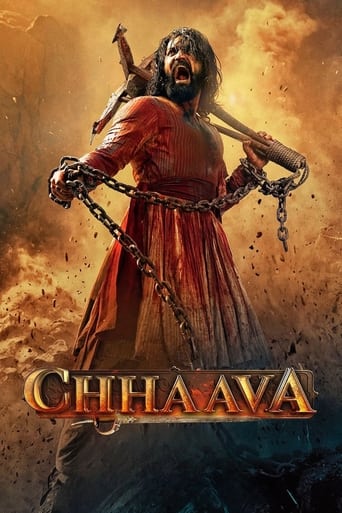
| Title: | Chhaava |
|---|---|
| Original Title: | छावा |
| Plot: | Shivaji's death sparks the Maratha-Mughal conflict. His son Sambhaji leads resistance against Aurangzeb's forces. Amid battles and intrigue, both sides face challenges in a struggle for power. |
| Cast: | Vicky Kaushal, Rashmika Mandanna, Akshaye Khanna, Ashutosh Rana, Divya Dutta, Pradeep Ram Singh Rawat |
| Director: | Laxman Utekar |
| Cinematography: | Saurabh Goswami |
| Editor: | Manish Pradhan |
Chhaava
Sucharita Tyagi
Independent Film Critic
Chhaava has a heart, but what does that heart beat for?
Chhaava
Nonika Singh
The Tribune, Hollywood Reporter India
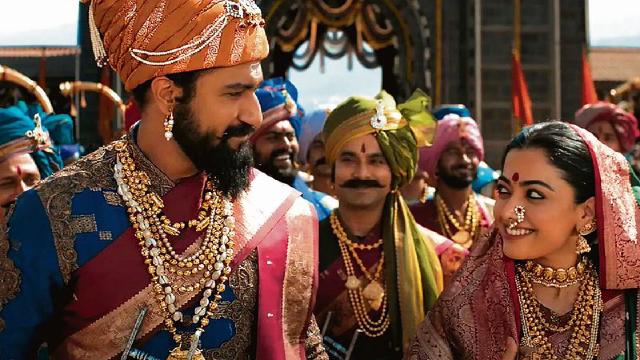
Unremarkable ode to a great warrior
For the uninitiated, the glory of the Maratha kingdom ends with the great warrior Chhatrapati Shivaji Maharaj. That his son, Chhatrapati Sambhaji Maharaj, was an equally valiant, fearless and fierce ruler is a fact we are not fully privy to. Thus, on this count alone, ‘Chhaava’, which chronicles the life and death of Sambhaji, is worthy of celluloid attention. After a brief historical introduction in the voice of Ajay Devgn, the film comes straight to the point. Mughal emperor Aurangzeb and his courtiers are celebrating the death of Shivaji. The Maratha kingdom is now well within their grasp. Only they have not factored in the might of Shivaji’s son. Vicky Kaushal as Sambhaji soon appears with his army and his valour is on full display as he vanquishes his enemy in Burhanpur, a domain of Aurangzeb. Clearly, the emperor is enraged and vows to wear his crown only when he hears Sambhaji scream in pain. Can the Marathas defeat the might of the Mughal army? We all know the answer to this question. The point now is how well the director, Laxman Utekar, can take us through it. Until the intermission, the narrative moves at a fast pace. The period setting is right, with grandeur befitting the 17th century in which it is set. Sambhaji is not all brawn, but heart too. Other characters include a maternal uncle, Sarsenapati Hambirao (Ashutosh Rana), a loving and fawning wife Maharani Yesubai (Rashmika Mandanna), and a Rajput braveheart who is a poet too (Vineet Kumar Singh). But the problem is that whenever a Bollywood film is in service of one character, historical or otherwise, it goes overboard in eulogising its hero. Even if well deserved as in the case of Sambhaji, it keeps drumming the fact time and again. The net result is that not only are the other characters sidelined, the hero even when played by an actor of immense calibre like Vicky Kaushal does not get time to truly breathe. One of the early dialogues is, “Hum shikaar karte hain shor nahin”. Yet, the film is loud, with a louder background score (imagine, by none other than AR Rahman).
Chhaava
Anuj Kumar
The Hindu
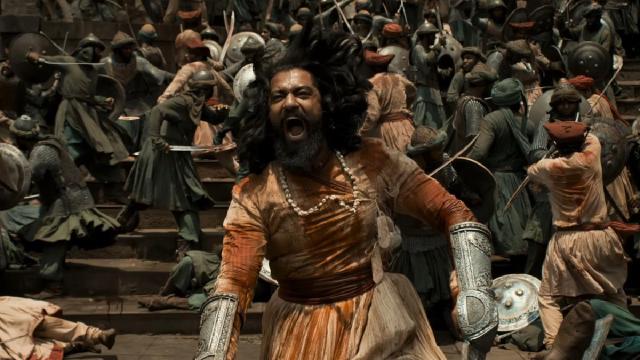
Vicky Kaushal, Akshaye Khanna jostle for attention in this uneven sketch of a Maratha legend
Struggling to choose between history and the current nationalist sentiment, Laxman Utekar’s unsurprising narrative finds its voice in the final act
Based on Shivaji Sawant’s popular novel, Chhaava is a puff piece on Maratha warrior Chhatrapati Sambhaji, who took on the might of Mughal emperor Aurangzeb for around eight years in the 17th Century. Carrying forward the defiant approach of his father Chhatrapati Shivaji, he kept Aurangzeb occupied in the Deccan during the second half of his reign, inflicting heavy damage on his humongous army and pride with his unmatched valour and guerilla tactics before being betrayed by his brother-in-law. Historians may not have been generous to the shooting star but, over the years, Sambhaji has acquired an almost divine status in Marathi cultural space. In recent years, at least three Marathi films portrayed him as someone who laid down his life for the Hindu faith. Director Laxman Utekar carries forward the narrative. Early in the film, when Sambhaji maims a lion, it becomes clear that it is going be a literal cinematic depiction of Calendar art by Utekar, who started his career as a cinematographer. When Sambhaji saves a Muslim child amid a battle — and a few reels later, Mughal soldiers burn a shepherdess alive — it becomes clear the agenda Chhaava seeks to promote and the emotion it wants to play up. However, when characters start introducing themselves and their intentions like players at the start of a cricket match, one wants to tell Utekar, ‘Zara Hatke Zara Bachke’
Chhaava
Sanyukta Thakare
Mashable India
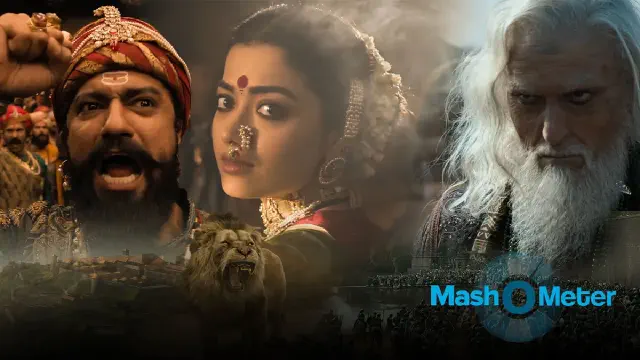
Vicky Kaushal's Film Is Packed With Heroism And Tales Of Valour
But we needed more
Laxman Utekar’s directorial Chhaava focuses on building up on Sambhaji Maharaj’s tales of heroism with slow-motion action sequences and dialogues backed by heavy music. Still, Vicky Kaushal’s performance adds agency to the character and urgency to the plot. The film explores parts of the long story while also building on the world around it, introducing the historic era and Indian warriors of the time. Akshaye Khanna’s Aurangzeb is one of the key performances that keeps the film hooked but we needed a bit more from the roots of the story. Chhaava begins with a long narration of Sambhaji Maharaj’s family, and the tales of valour of his father Shivaji Maharaj and his grandfather Shahaji Maharaj. Narrated by Ajay Devgn, the same fills in the essence of the Maratha Swaraj as building blocks for the film. We do not get to see much of Sambhaji Maharaj’s childhood or his training for the throne instead, the makers added a few scenes showing how the memory of his late father always drove him in the right direction, meanwhile, his greed to know more about his mother and to make her proud kept him moving forward.
Chhaava
Uday Bhatia
Mint Lounge
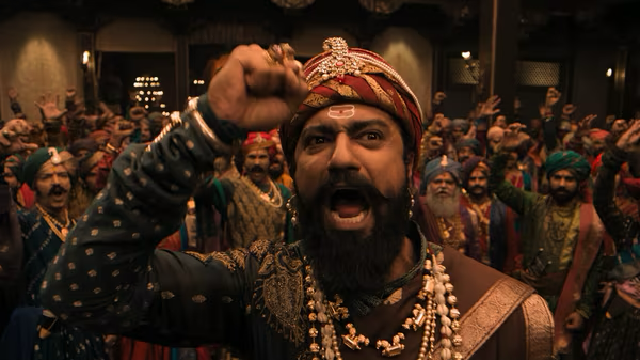
Vicky Kaushal historical is a loud slog
Laxman Utekar’s period action film shouts itself hoarse without breaking any new ground
Chhaava opens with a Maratha raid on a Mughal town. As he slashes his way through enemy ranks, Sambhaji (Vicky Kaushal) notices a crying boy caught in the skirmish. He returns the child to safety. I knew this image would return in some way and it did, about an hour later. A little girl herding goats on Maratha land wanders out of the frame. In the next shot, she’s staggering back, set on fire by advancing Mughal troops. There’s no such thing as a moral army, only propaganda and the tales we choose to tell ourselves. A French traveler to India in the early 18th century wrote about the devastation of one Maratha raid: “We camped out next to villages reduced to ashes… Women clutching their children in their arms, men contorted, as they had been overtaken by death… a sight of horror such as I had never seen before.” We see such a scene in Chhaava—but done by the Mughals. When the Marathas in Laxman Utekar’s film (based on a 1980 novel) burn down a town, there isn’t a human in sight, and the only casualty is property.
Chhaava
Srivathsan Nadadhur
(for M9 News)
Independent Film Critic
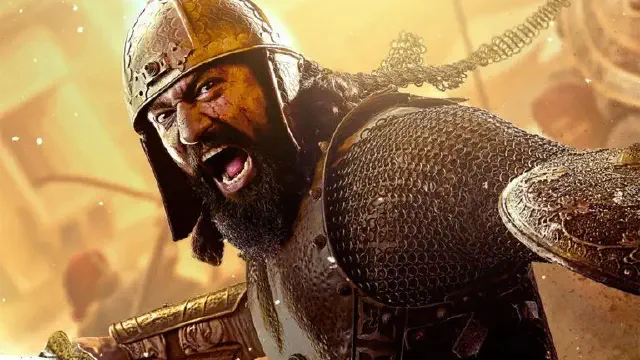
Vicky’s Roar Elevates the Epic
After Shivaji’s death, his son Sambhaji inherits the Maratha kingdom, facing threats from the Mughals, led by Aurangzeb, and internal conspiracies. While trying to uphold his father’s legacy and defending Swarajya (self-rule) against overwhelming odds, the film captures glimpses of his political mettle, military campaigns, and personal relationships, Performances Vicky Kaushal, in a high-pitched role as Maratha king Sambhaji, unleashes his complete range as a performer – striking a balance between action, romance and loud dialoguebaazi – with grace. It is, without doubt, a career-defining performance for the star. He is perfectly complemented by Rashmika Mandanna, who steps into the shoes of a resilient Maratha queen with poise and elegance. If there’s an emotion that encapsulates Chhaava as a film- it is anger. The men, the Marathas and the Mughals are hungry for power and vengeance alternatively. Chattrapati Shivaji has breathed his last after a prolonged illness and Aurangzeb calls for a celebration to signal the fall of the Maratha empire. The stage is set for his son Sambhaji to take charge of the kingdom at a vulnerable time.
Chhaava
Priyanka Roy
The Telegraph
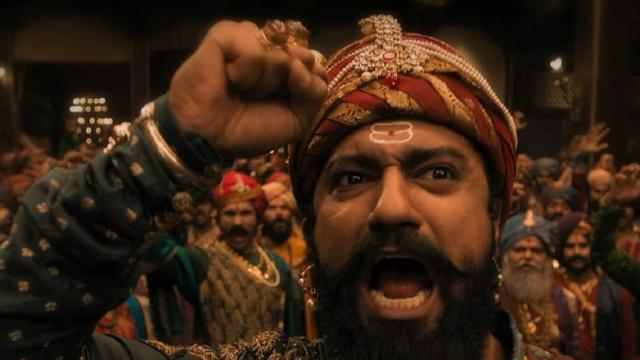
Chhaava is weak and wobbly in parts but is ultimately held together by Vicky Kaushal.
The law of averages — that a brilliant father rarely gives way to an equally illustrious son — was turned on its head as early as the 17th century when Sambhaji took over the reigns of the Maratha empire from his father, Chhatrapati Shivaji Maharaj. Chhatrapati Sambhaji Maharaj’s depiction in history — despite tales of his unwavering valour — are unfortunately sketchy. Even the name by which he was referred to — ‘Chhaava’ aka ’lion’s cub’ — is more of a nod to Shivaji’s larger-than-life courage and persona. To cite an almost as-good-as-it-gets allusion, it refers more to Mufasa than it does to Simba. Hence, the unsung story of Sambhaji, and his relentless fight against the Mughals, led by the tyrannical Aurangzeb, needed to be documented. Chhaava does that, with its source material being the eponymously named historical novel by Shivaji Sawant. Which brings us to the tricky question of how much of Chhaava — the book, and by logical extension, the film — is fact and how much of it is exaggerated fact? We will, perhaps, never know.
Chhaava
Deepak Dua
Independent Film Journalist & Critic
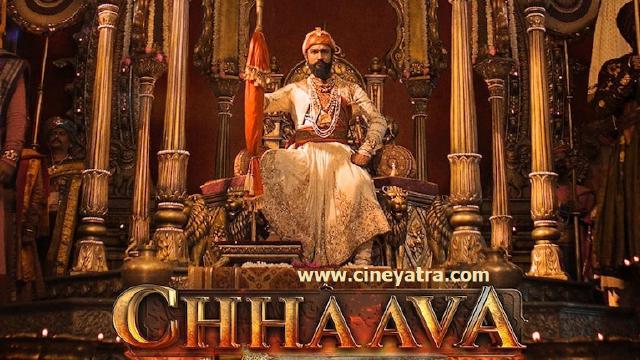
शेर नहीं ‘छावा’ ही निकली यह फिल्म
एक दृश्य देखिए-मुगल बादशाह औरंगज़ेब की कैद में अत्याचार सह रहे छत्रपति संभा जी से औरंगज़ेब कहता है-हमारी तरफ आ जाओ, आराम से ज़िंदगी जियो, अपना धर्म बदल कर इस्लाम अपना लो…! संभा जी जवाब में कहते हैं-हमारी तरफ आ जाओ, आराम से ज़िंदगी जियो और तुम्हें अपना धर्म बदलने की भी ज़रूरत नहीं है…! यह एक दृश्य और फिल्म में बार-बार आने वाले संभा जी के संवाद दरअसल छत्रपति शिवाजी और उनके उत्तराधिकारियों की उस ‘हिन्दवी स्वराज’ की अवधारणा को सामने लाते हैं जिसमें हर किसी को अपने-अपने धर्म को मानते हुए साथ-साथ जीने का अधिकार था। यह फिल्म यह भी दिखाती है कि इस देश में ऐसे कई लोग थे जिन्होंने ‘धर्म’ त्यागने की बजाय अपने प्राण त्यागना ज़्यादा सही समझा। यह फिल्म उन लोगों को भी दिखाती है जिन्होंने सत्ता की भूख के चलते अपनों के ही सिर उतरवाए और ऐसे-ऐसे षड्यंत्र रचे जिनके परिणाम आने वाली नस्लों को भुगतने पड़े।